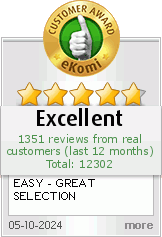
Guide to Gardening for Pollinators
Pollinators are what make beautiful flowers bloom in a garden. Pollinators require nectar from plants to fulfill their nutritional needs: Bees and butterflies may be small, but flying requires a lot of energy, which nectar provides. Many gardeners purposefully plan their gardens to attract pollinators and give them a safe habitat. Careful planning is required for people who want to attract pollinators to their flowers, but they are rewarded with beautiful gardens and the knowledge that they are helping to keep this necessary part of the environment thriving.
Location
Some plants thrive in sunny spots, while others require shade to bloom. Pollinators, however, tend to really love spending time in the sun, and many of their favorite flowers need at least partial sun to grow. This means that you'll likely want to pick a sunny spot for your pollinator garden. It's also important to think about providing some level of protection from the wind for the bees and butterflies you want to attract to your garden.
Soil Type
Different plants require different types of soil. Before you start planting, dig up some soil and study it. Is it sandy, sticky, or somewhere in between? Knowing what your soil is like can help you pick the right flowers to plant.
Choosing Plants
Once you've picked where your garden will go and you know what the soil is like, you can pick plants that will grow the best in those conditions. Plants native to the region should always be the first choice. Typically, they will require less care than plants native to other regions, and they're also usually plants that local pollinators prefer. If you're buying full-grown or partially grown plants, get them from a nursery that doesn't treat its plants with insecticides or pesticides, which can be harmful to pollinators' health. Also, pay attention to when different plants bloom. Pollinators need food in the spring, through the summer, and into late fall, so picking plants that bloom at different times can help to ensure that the garden is full of food for pollinators no matter when they visit. It also means that your flower garden will have beautiful blooms throughout the growing season.
Seeds or Plants
Is it better to start with plants or to grow a garden from seeds? It depends on how much time you have and how much money you have to spend. Seeds take longer to grow but are much cheaper than plants. However, you'll need to make sure to plant your seeds at the right time so they'll be able to germinate, grow, and flower before winter. Planting flowers instead of seeds means that pollinators will start visiting much sooner.
Prepping and Planting a Pollinator-Friendly Garden
Existing grass must be dug up and the soil must be turned before you begin to plant a new garden. Some people prefer to use raised beds or containers so that they can skip digging up grass or turning the soil. Home improvement and gardening centers have lots of premade options, and some people enjoy building their own raised beds. But whether the garden is in the ground or in a container, it's important to add compost or potting soil to improve the health of the soil so that the plants or seeds will get the nutrients they need. Also, before you plant anything, make sure that there's no threat of frost.
Care for the Garden
After the seeds are planted or the plants go in, a gardener's work is far from done. Seedlings and new plants require a lot of care. First, they need water. It's important not to over-water them, but they need more water at this stage of life than they will need once they are well-established. Pollinator-friendly gardens also should not use pesticides or insecticides, which means that they must be weeded by hand and often. The plants will also need to be checked for insect issues. Soon, butterflies and other pollinators will consider the new garden their home!
Learn More About Pollinators
- Pollinators Need You and You Need Pollinators
- Pollinator-Friendly Practices
- The Why, What, When, Where, Who, and How of Pollination
- Passion for Pollinators
- Planting for Pollinators
- Attracting Pollinators to the Garden
- What's the Buzz? All About Pollinators
- Plant for Pollinators
- Pollinator Health Concerns
- Farmers Can "Bee" a Friend to Pollinators
- Attracting Pollinators to Your Garden
- Science: Pollinators
- Pollination and Pollinators
The article was created by Chad Kremp



